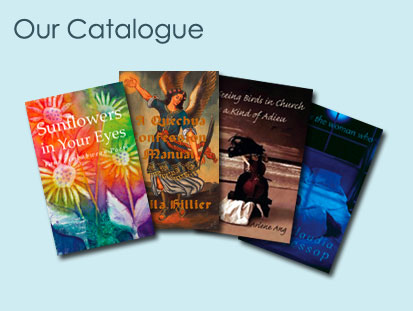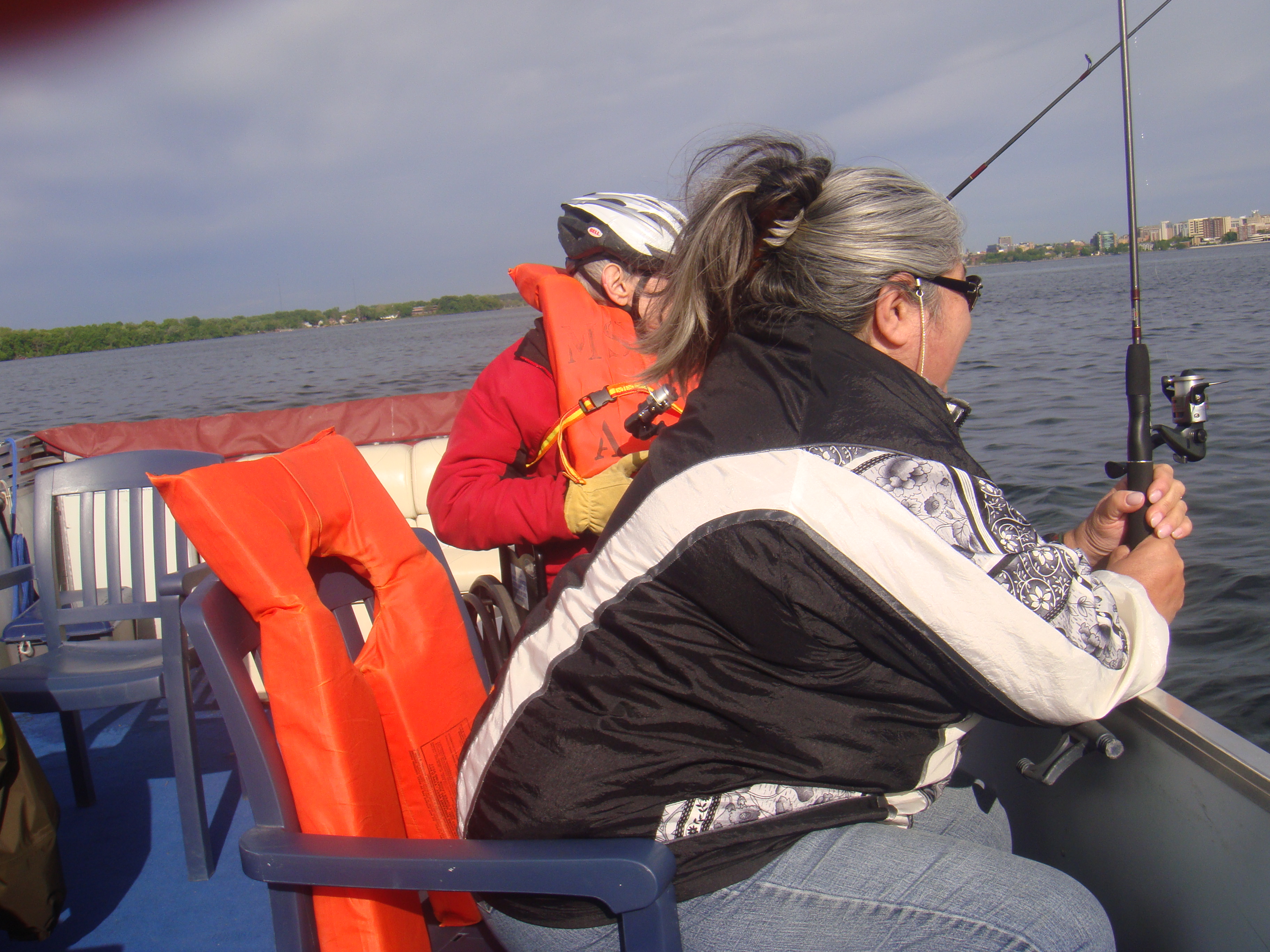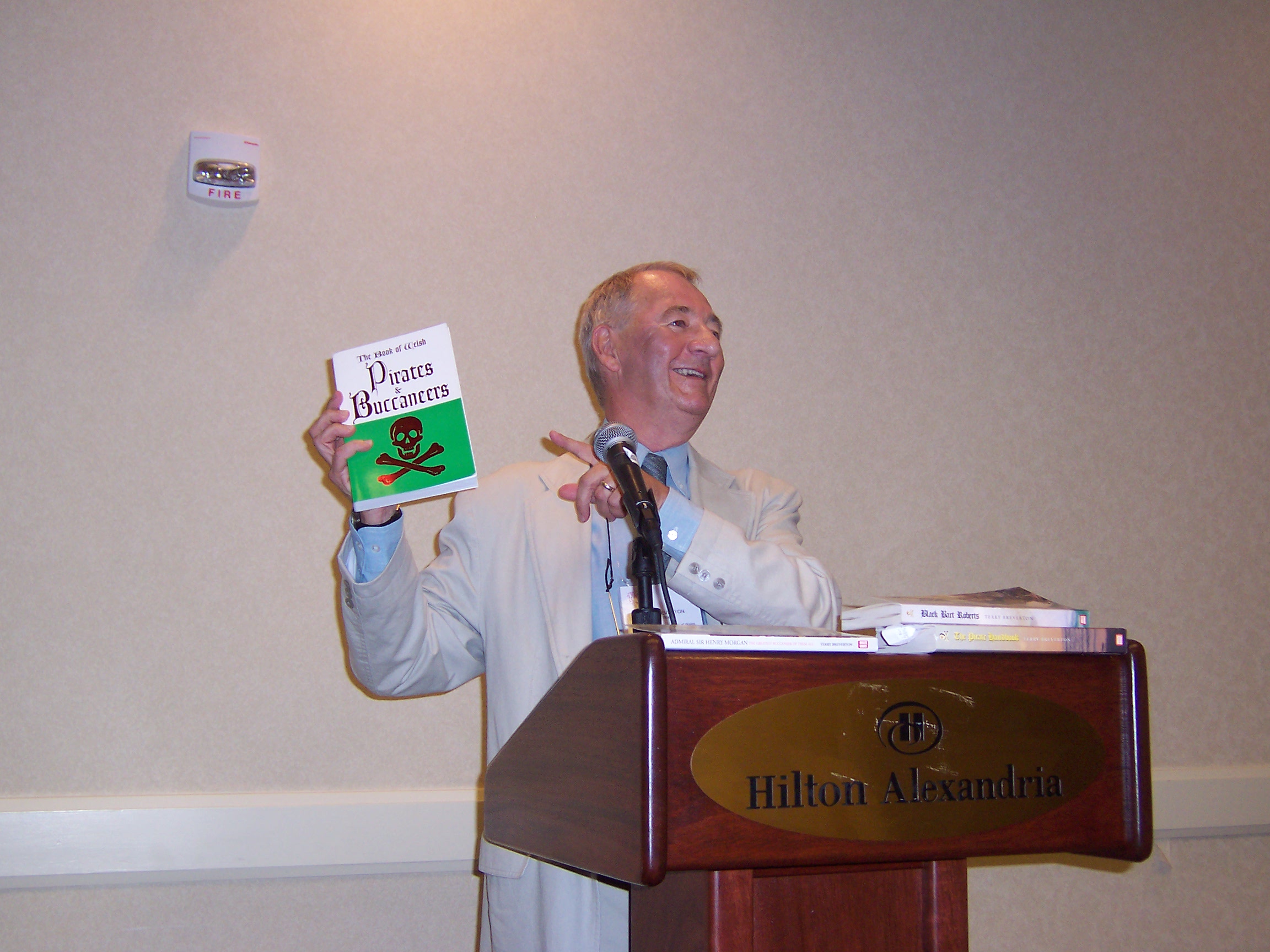Blogs
 Read more about the 2011 NAFOW: http://americymru.net/group/northamericanfestivalofwales2011clevelandohio#ixzz1AexWh0v8
Read more about the 2011 NAFOW: http://americymru.net/group/northamericanfestivalofwales2011clevelandohio#ixzz1AexWh0v8
A number of people have expressed consternation and exasperation with the 'Top Blogger' algorithm. And I believe they have a point. Over the last two months it has become clear that the algorithm which ranks blogs on the site, only rewards posters for the number of comments on their posts and fails to take account of other significant factors. Consequently from now on, we will be awarding 10 points in each of the following categories to complement the rankings provided by the algorithm.
1. Quality - We will award ten points to the post or poster we think attains the highest quality standards each month.
2. Quantity - Ten points will be awarded to the most active blogger on the site OR to the person who contributes the most substantial posts. There is no objection to 'snippeting' or to short posts which are links to offsite articles or resources BUT this will allow us to recognise more consequential and significant posts.
3. Popularity - Based on perusal of the log files and taking into consideration Facebook 'likes', Tweets etc, we will award ten points to the post or poster who drives most traffic to the site each month.
The new adjudication system will be implemented for the first time this month ( January 2011 ). Hopefully it will constitute an improvement on the previous arrangement. If anyone has any ideas for making Top Blogger fairer, livelier or more interesting please let us know in the comment box below.
Jan Fortune-Wood is a Welsh author and publisher. She has published four novels and is the proprietor of one of Wales' most innovative and dynamic independent publishing houses. AmeriCymru spoke to Jan about her writing and her future plans for Cinnamon Press.
 AmeriCymru: You are both an author and a publisher - which came first and did one lead to the other?
AmeriCymru: You are both an author and a publisher - which came first and did one lead to the other?
Jan: Ive written all my life. My creative writing took a back seat for a long time while I was home educating my children and working (I was a Church of England minister), but I did write books on home education and alternative parenting during this time. About ten years ago i was seriously ill and we moved to North Wales. When I was beginning to recover I went back to writing poetry and had an offer from a small press to publish my first collection. A bit later I did an MA (masters degree) in novel writing and the same publisher took my first novel. By this time Id began to dabble with publishing via a small press poetry magazine and I was also realising that in my MA I particularly had editing skills that I could use so Cinnamon Press was born.
AmeriCymru: Your novel 'Standing Ground' is set in a future time dominated by the despotic E-Government. But it is replete with references to mythical Arthurian characters. Can you tell us a little more about the book?
Jan: Ive written four novels and The Standing Ground was far and away the most fun to write. It was aimed at older teenagers, but seems popular with adults too. The ideas came when home education in the UK was under attack from government moves to dictate more of the content of education at home and have more invasive policies into family life. At the time there were also wider moves to introduce ID cards for everyone which my older children were involved in opposing.
The Standing Ground imagines a not too distant future in which the benefits of technology are magnified, at least for the affluent, but the price of this is an all pervasive controlling government that no longer trusts parents to raise their own children, but instead removes them to pods attached to schools with minimal parental contact and a restricted curriculum, no history or philosophy, for example). One of the main characters is Luke, a fifteen year old who is pushing against the system, partly because he senses that his own father is different and not so tied into the system. Nazir, Lukes father, is a famous artist, but also seems to have privileges that Luke cant quite understand. Despite this connection Lukes freedom is threatened when he begins to ask too many questions and it seems likely that he will be sent to a draconian correctional facility to be made to conform.
Online Luke has met the other main character of the book, Alys. She claims to live outside of E-Government in a corner of Wales (present day Gwynedd) that has resisted and maintained a small population of free people. Luke has no idea if Alys is real or just an online fiction to trap him, but he has decide whether to take drastic action to try to reach Alys in The Standing Ground.
Alyss family have their own problems within The Standing Ground there is a fierce debate as to whether this fragile free area should use their resources to try to communicate with the wider population and break the control of E-Government (Alys and her mysterious maths mentor, Emrys Hughes, have their own project to break government encryptions) or whether they should use the European parliament to gain recognition as an independent state, giving them more security.
Ive always been fascinated by mythology and the archetypes it gives to stories. The Arthurian legends speak of Arthur returning at dark times to bring freedom and living in North Wales. The landscape is steeped in the legends of the Mabinogi, including the stories of Artur (or King Arthur). So in this story the characters slowly emerge as modern representations of those archetypes and their power of maths and technology also contains older powers that converge to stand against the darkness.
AmeriCymru: What are your future writing plans?
Jan: I have a new novel out this month, Coming Home a novel about a man who abandons one family only to later abandon another, returning to Wales to try to pick up his life and written from the perspective of himself and the women in his life.
Im currently working on two new books. The first is a poetry collection centred on a village in the mountains above my home called Cwmorthin. It was once a large slate mine with barracks and houses and chapel and mine workings, a harsh industrial place known as the slaughterhouse because of the high death rate of the miners working there, but also a thriving community with cabans in which the men met daily to discuss politics, religion, philosophy and to sing. Now it is a place of picturesque ruins and utter tranquillity, but the culture has gone. Im examining the emotional landscape of the place through natural landscape and architectural ruins in poetry sequences.
The second is a novel that deals with issues of transformation, centred on three characters who undergo major life changes in traumatic circumstances and whose stories interweave. Its set in England, Wales and Zimbabwe and covers periods from the Zimbabwean bush wars to the present day. Its involved lots of research and lots of getting to know the characters, but Im hoping the writing will come together over the next year and then the editing can begin.
AmeriCymru: When was Cinnamon Press founded and what tempted you into the publishing business?
Jan: Cinnamon Press was five years old in 2010 so were still relatively young. I was looking for a new direction after major illness and life change (I had a series of severe work place assaults in my parish work) and started a magazine to keep my brain ticking over. Then, doing the MA, I realised I had a knack for editing so Cinnamon began as a very small scale tentative project, but the success of early books helped it to snowball. We are still very much a small press and run on a shoestring with a lot of voluntary input, but the books have gone from strength to strength.
AmeriCymru: What does Cinnamon Press look for in a work for publication or an author?
Jan: Our tag line is independent, innovative, international Were really looking for distinctive voices whether in poetry or prose books that have something to say and say it with skill. We put a lot of care into editing, but we dont have the resources to take on books that are really not ready to be published so authors need to be sure the book is of high quality before they submit. In simple terms we want good writing that engages us.
AmeriCymru: In addition to publishing, Cinnamon Press provides a range of services and competitions for aspiring and established writers. Care to tell us a little more about this aspect of your work?
Jan: Its often hard to get started in writing and small presses can be good places to get that first platform. The competitions run twice a year. The novella/novel competition and the poetry collection competition are for first time authors in those genres from anywhere in the world. The competition leads to a full publishing contract for a first collection or first novel/novella and the books that have been published in this way have done very well, including being short listed for some prestigious literary prizes. The short story competition is open to any story writers and the winning story appears in an anthology named after the story along with the best runners up from the story and poetry competitions. Weve also gone on to take single author collections from two of the authors whove done well in the story competitions.
We offer other services to help writers, both beginners and more experienced writers. These include several writing courses that run through the year and a mentoring service that I run with two other Cinnamon Press writers.
AmeriCymru: Cinnamon Press also publishes Envoi magazine, can you tell our readers about that?
Jan: Envoi is the oldest poetry magazine in the UK, now in its 54th year. Its a large format, perfect bound magazine with a good range of poetry from new and established poets, reviews, articles and features such as guest poets or poetry in translation. Envoi receives an enormous amount of submissions so its very competitive to get into, but this means that the quality stays high.
AmeriCymru: Where can people buy Cinnamon Press titles online?
Jan: We have a dedicated website at www.cinnamonpress.com with all of our books available and postage rates for international customers set up there. Books are also available at www.inpressbooks.co.uk an Arts Council site promoting small press books and at the Welsh Books Council site, www.gwales.com The books are on Amazon in the UK and the Book Depository in the UK, but our own site or Gwales or Inpress are the recommended ones.
AmeriCymru: How do you see Cinnamon Press developing over the next few years?
Jan: We started with poetry collections and then added full length fiction. Over the last couple of years weve published some unique and exciting nonfiction of cross genre titles and we will be continuing to develop this area of publishing. Weve also just published our first single author short story collection and will be developing this genre further. Another new area in 2010 was a book combining poetry and imagery I Spy Pinhole Eye by Philip Gross and Simon Denison won the Wales Book of the Year award and this year we have our second imagery and poetry collaboration, a very exciting book that looks at issues of ecology, Where the Air is Rarefied by Pat Gregory and Susan Richardson. With such wonderful books my main development aim is to get the books out into more arenas these books really deserve to be read.
AmeriCymru: Any final message for the readers and members of AmeriCymru?
Jan: Welsh publishing generally exists on tiny budgets and our readers really matter. Do support the books in any way you can and if youd like to be added to our monthly mailing list with news of new books and offers send me an email jan@cinnamonpress.com
Thank you for reading and all the best for 2011.
The extraordinary events in a doctors life the miracles and tragedies which reflect the complexities of our bodies and life in its entirety are reflected in a new autobiography by a leading Welsh doctor.
Gerwyn Elias is an experienced doctor and his autobiography gives us an insiders view of some curious incidents: some grave, others amusing but many disastrous, such as the story of the 60-year-old who was convinced that she was expecting a baby, and the young woman who was terrified of eating after seeing her friend choke to death whilst eating chips. These harrowing stories reveal the remarkable way in which a doctor can treat his patients physically and psychologically.
The author has experienced the joy of being able to save lives and the sadness of seeing lives lost. He discusses difficult medical matters in a straightforward manner and offers plenty of sensible advice on how to live a long and healthy life. He advises, There are three ways to stay healthy and help the finances of the health service: avoid overeating, excessive alcohol intake and dont smoke. We would all live longer and feel better throughout our lives. Moderate exercise should be added as a fourth.
Gerwyn Elias is a descendant of the Cilie poets and was also born in Ceredigion. He has enjoyed an illustrious career, winning the Gold Medal for Surgery at Cardiff Medical School, before moving on to work at a number of prominent hospitals. He worked as a GP for 34 years in Penarth.
A Doctors Tale is published in December by Y Lolfa and retails at 7.95.
AKA My 2010 Christmas letter to my Welsh friends: (will add more photos soon!)
Nadolig 2010
Pob bendith i chi dros yr wyl,
I hope this season finds you and yours safe and happy. It has been an incredibly busy and very Welsh year for me. While I continue to volunteer with an older, mostly-homebound man (unless we take him out), I have also been driving regular dog rescue runssort of an underground railroaddogs, and sometimes cats, are rescued from bad situations and taken to the safety of a new home or shelter,with many people driving an hour or two and then passing the animals on to the next driver.
All year long, I was kept busy with my new duties as Chair of Publicity and Marketing for the North American Festival of Wales, which was held in Portland, Oregon, in the Pacific Northwest,i n September. Besides the work at home, it entailed two road trips to Portlandone in March and April and one in August and September. Both were 3-4 weeks and about 5500-6500 miles. In March, I combined my trip with a Board meeting of the Great Plains Welsh Heritage Project, in Wymore, Nebraska, and an Easter visit with our daughter, my aunt and cousins in Southern California.
If you are familiar with US geography, you will know this was not the most direct route to Oregon! I took my dachshund, Macsen, with me. (In the US Macsen rhymes with dachshund.) We had an enjoyable trip driving up the Coast through the Redwoods, 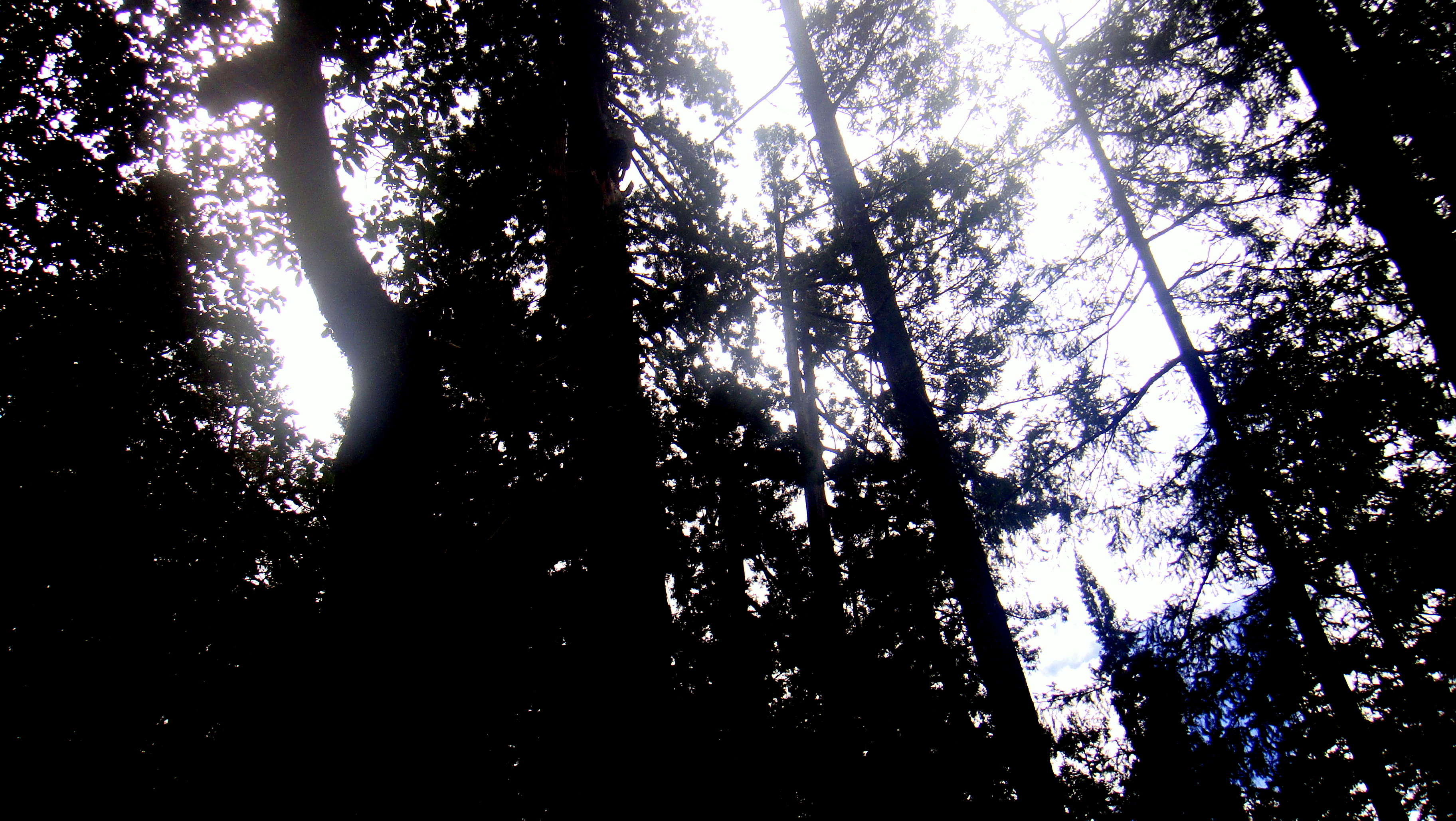 and on the way home drove along the Columbia River Gorge in Oregon,
and on the way home drove along the Columbia River Gorge in Oregon, 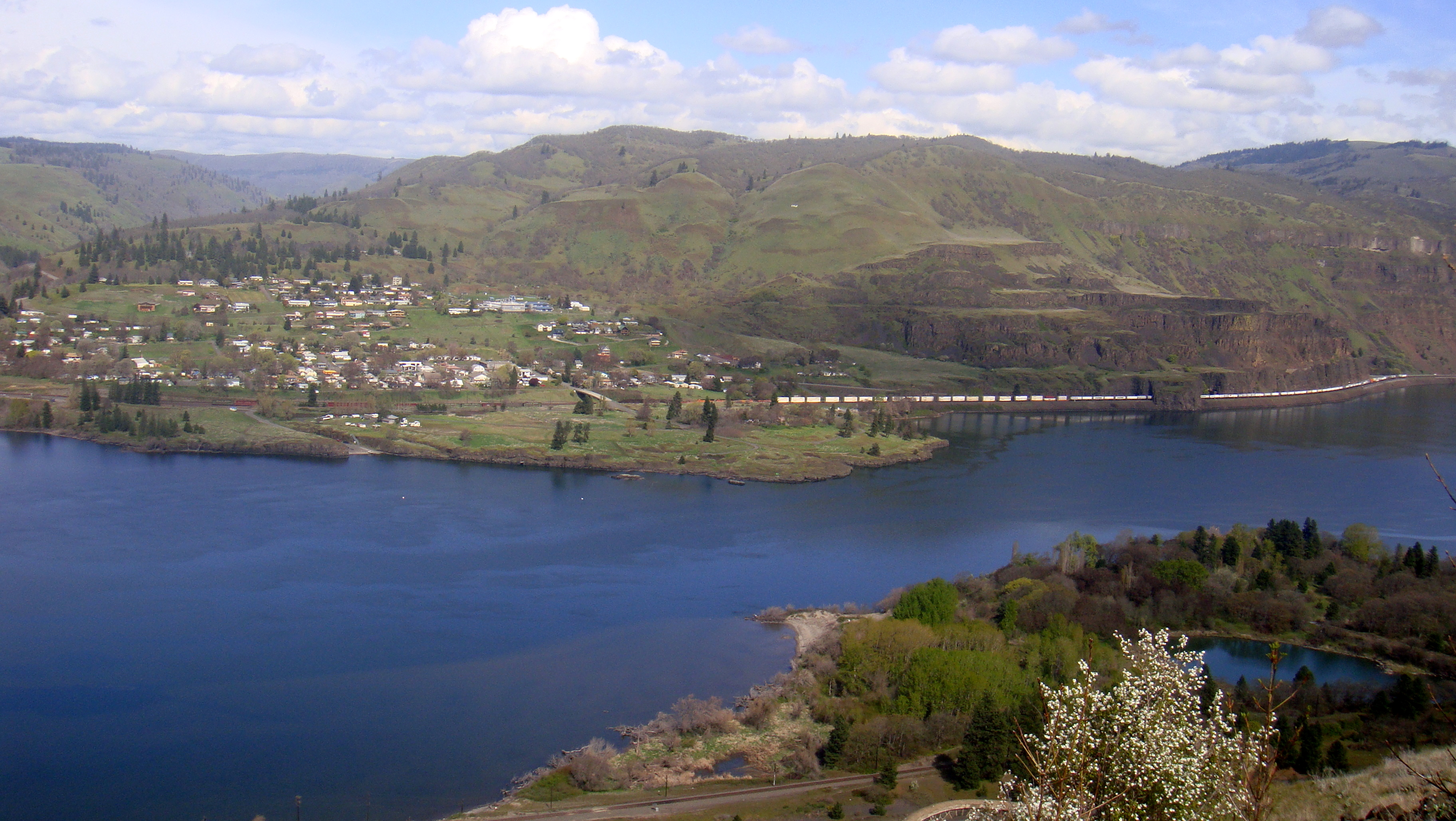 and followed the Lewis and Clark Trail through Washington, Idaho, Montana and North Dakota. We even slept two nights in a B&B shaped like a beagle!
and followed the Lewis and Clark Trail through Washington, Idaho, Montana and North Dakota. We even slept two nights in a B&B shaped like a beagle!
But before that trip,we (my husband and I, not the dog!) attended a Burns Night supper (and ate haggis, again); three St. Davids Day eventsone with the Chicago Tafia; one in Racine, Wisconsin; and one here in Madison. Luckily, they were all scheduled different days! I had the pleasure of meeting Dafydd Wigley in Racine, as he was the guest of honor. He had family that immigrated to Racine.
In May, I attended the Wisconsin Welsh Weekend for Everyone, in Wales, Wisconsin. Saturday was full of family-friendly events, including a fabulous rugby demo by the womens rugby team from the university. I sort of understand the game now! Sunday we finished up with a wonderful gymanfa ganu in the Welsh Church.
I took some Tai Chi classes in May and went fishing for the first time with the man I volunteer with. Although we went four times during the summer, no one caught anything, but we had fun being on the lakes and taking in the views. We also took him out on a pontoon boat to watch the Fourth of July fireworks from the lake.
In June, I had another Board meeting in Nebraska, and stopped in Chicago on the way home to join the Tafia at a pub night and we watched the US premiere of the film, A Bit of Tom Jones.On returning home, I had to have surgery, unexpectedly, just before I was due to drive to Canada for my friends wedding! I made the trip anyway, and enjoyed the wedding, but could have done without the surgery! This was a couple I introduced in 2009 and they have since moved to Wales, which brings me to myJuly trip to Cardiff for Cwrs Cymraeg and my first National Eisteddfod.
I was gone about 3 weeksone week for Cwrs; one for the Eisteddfod; and one for visiting and sightseeing. What a fabulous experience it was to spend so much time on the maes, hearing Welsh spoken everywhere, and speaking as much as I could. I did feel sorry for the people who had to listen to learners all week, though! I was delighted to have my friend from Holyhead come down, as I would not have known what to see and do on the maesthere was just so much to take in! It was so much fun to see friends from Wales at the Eisteddfod! I also toured the Penderyn distillery (yum!), spent a day in Swansea and on the Gower, and shopped so much I had to borrow an old suitcase from my friend to bring everything home in!
I was home 2 weeks and I had to get ready to leave for Portland again, for the NAFOW. This time I combined the trip back with a visit to Mt. St. Helens (this was the 30 th anniversary of the eruption); a visit to my nephew on an island in Puget Sound; a quick trip to Vancouver, BC, to see the totem poles in Stanley Park (they were amazing); a drive through Yellowstone, where I not only saw Old Faithful go off, but got up close to a bison that decided to walk along the shoulder of the road right next to my car! Then I had a one-week stopover in Rapid City, South Dakota, where I attended a museum conference for the Great Plains Welsh Heritage Centre. It was very useful, but I ended up with pneumonia by time I got home.
By the end of September I was mostly well, and went on a one-day riverboat cruise down the Mississippi with the man I volunteer with. The next day I headed to Nebraska again for another Board meeting.
When I got home, I began working with an illiterate man that I worked with about year agohe had dictated a book to me and now it was published and he wanted to learn to read a short bit. We did that and he was great. I went to his book reading and talked about the whole process and read some as well.
All year long, we have been going to doggy playgroups and in October I went to six dog Halloween parties! Three of our dogs (a hound, a beagle, and one of the dachshunds) won $20 for their costumesthey were a hotdog, and Mustard and Ketchup! 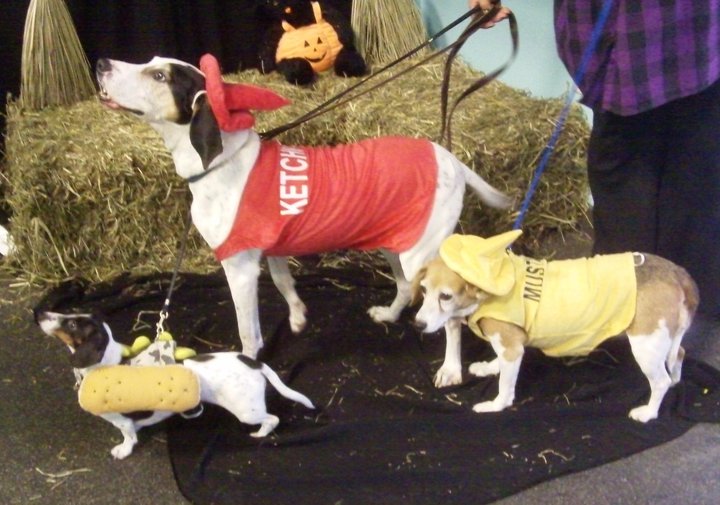
In November, I joined a Womens Scrabble Club and have been enjoying playing over coffee and chit-chat. We also had our state Christmas Gymanfa Ganu, but I was very disappointedit was all English, except for four verses! Our local Cambrian Heritage Society had our fall meeting with 4 members sharing experiencesone talked about university student exchanges with schools in Wales; one talked about working on his Masters degree in Celtic Studies from Lampeter, mostly on-line; one told about his experiences directing cymanfoedd ganu in various states (he was NOT the one who directed the mostly-Saesneg one!); and one person talked about and modeled traditionalWelsh dress from the past.
I made one last road trip to Tennessee to see an ailing cousin and visit other relatives over Thanksgiving. It was quite cold here when I left (37F) but 75F there! I am glad I went, as my cousin is now in the hospital with his son at his side.
Since Ive been home, Ive continued the regular activities, including taking our friend to see the Nutcracker Ballet and helping with his Christmas shopping, wrapping and card-mailing. Now its my turn to get my holiday things done!
My husband left yesterday for 15 days in California to spend Christmas with our daughter. It was his turn to go and my turn to stay home. However, it is now very cold (minus 9F the other day and weve had one blizzard already!).
I hope your year has been as full of magical moments and friendship and adventure as mine has. If you dont hear from me for awhile, that is because 2011 will be just as crazy as 2010 was, but I am (mostly) enjoying all of it! I think of you all often as I travel lifeshighways and hope we see each other soon!
Gyda ddumuno iechyd a hapusrwydd i chi yn 2011,cyfarchion cynnes,
Quick check on Welsh reference in poem from Night of the Living Bards Champion
By David Cooke, 2011-01-06
I have just revised a poem to include a Welsh reference. I hear the Welsh are especially adept at pointing out flaws. Have at it...
Valentines Day Tomorrow
Behind the Portuguese men-of-war
through their dragging tentacled rain
hides a hunchback moon.
On sloped cement the color of the storm
he turns the vice down
on something wrapped in a rag.
A spoon handle cut from its cradle
twisting it round to fit a finger.
The Welsh give wooden spoons
before engagement rings.
He teased, trying to milk
the silver spoon she found.
She turned it on him giving
the spoon with a well here.
Using the hammer to pound
the vice tighter to round out
the flat spots in the ring.
It is scarred by the pliers
he first tried. But it is
impossible to file them down
without losing the inscription.
Gone already is the t in "Eternally Yours".
Previously printed in Ninnau
All hail Johnny Depp! So began Terry Brevertons seminar on Welsh pirates during the 2007 North American Festival of Wales.. Drawing from his several books on pirates and privateers, Mr. Breverton entertained and educated his audience with lively anecdotes about swashbucklers and scoundrels during the Golden Age of Piracy.
Life on board a pirate ship was infinitely more attractive (and generally longer) than what awaited men pressed into service on other vessels. Pirate ships were democratic, with captains only having ultimate authority when under attack. Riches were (supposed to be) divided equally, and what riches they were! Multi-million dollar treasures were plundered on the high seas. Privateers were given letters of marque by various government officials, which gave them permission to loot any enemy ship, with the proviso that a percentage would be turned over to the government. When privateers grew tired of taking all the risks and sharing the bounty, they often turned to out-and-out piracy.
Due to time constraints, Breverton focused on two of the most famous Welsh pirates, Sir Henry Morgan and Black Bart Roberts, but his books and research paint a broader picture of the impact Welsh pirates and privateers had on world governments at the time. He made the case that privateers saved King Charles reign from being a total disaster, and certainly piracy took a heavy toll on merchant sailing and trade in the Atlantic and Caribbean.
Not just outlaws, pirate captains like Morgan and Roberts were gifted strategists, thinking their way out of seemingly hopeless situations. Frequently taking on much larger ships, and even small fleets, when they were outgunned and outmanned, they still managed to give the enemy the slip time and time again.
These were extraordinary men. Back home in Wales, they were heroes, and today, thanks to Brevertons work, we can relive their adventures and learn a bit of history at the same time.
So, enjoy Hollywoods pirates, but for the inside scoop check out Brevertons books including Black Bart Roberts: The Greatest Pirate of Them All; Admiral Henry Morgan: King of the Buccaneers; The Book of Welsh Pirates and Buccaneers; and the Pirate Dictionary.
Welsh National Gymanfa Ganu Association Seeking Board of Trustees Candidates
By mona everett, 2011-01-06
What Board positions must be filled this year?
There will be several vacancies on the 2011-2012 WNGGA Board ofTrustees. We are asking for names of qualified candidates, who will be voted on at the Annual Meeting, Sept. 3, 2011, at the North American Festival of Wales, in Cleveland, Ohio. Trustees serve a three-year term and may be elected for a second term.
Who is the ideal Board candidate?
There is no ideal Board candidate. Instead, WNGGA is looking for dedicated individuals with diverse skills to complement the current Board.
What criteria will the Nominating Committee use to select Boardcandidates?
The only requirement of Board candidates is that they are WNGGA members and have been a member for at least one year. Six trustees shall be residents of the Western United States west of the Mississippi River. Nine trustees shall be residents of the Eastern United States east of the Mississippi River. Five trustees shall be residents of Canada. One Trustee maybe elected from Wales. In certain cases, a member or members may be elected from any other region, to fill the vacancy or vacancies in another region.
What do Board members do?
The Board is responsible for planning and carrying out the annual North American Festival of Wales.
How much time does Board service require?
Board members must be willing to invest time in preparing for and thoughtfully participating in Board meetings. The Board meets twice a year.Also, each member of the Board serves on at least two committees and should therefore be available to participate in regular committee work and respond to communications.. Finally, Board members are expected to attend the NAFOW
May I nominate myself?
Yes. WNGGA members may n omina te themselves for the Board of Trustees by following the same procedures they would use in order to nominate someone else.
How do I nominate a candidate?
If you know of an individual who meets the Nominating Committee's criteria, and who might be willing to serve on the WNGGA Board of Trustees, please complete the nomination form below.
Mail form to:
WNGGA International Headquarters, Stacy Evans, Executive Director, PO Box 410, Granville, OH 43023. or email it to: president@wngga.org . One of the Trustees will then contact the candidate. WNGGAs Nominating Committee will accept Board nominations by post until August 20, and at the NAFOW through Sept. 2, 2010.
Visit our website for more info: www.nafow.org
Thank you!
WNGGA Nominating Committee
NOMINATING FORM
Your name: _____________________________________________________
Address: ________________________________________________________
________________________________________________________________
Phone: __________________________________________________________
Email: __________________________________________________________
Check here if self-nomination
Name of the person you are nominating:_____________________________
Address: ____________________________________________________________
_____________________________________________________________________
Phone: ______________________________________________________________
Email:__ _____________________________________________________________
Have you discussed this with the candidate? __________________________
How long have you known this person ?_______________________________
How has this person been involved in Welsh activities? ______________________________________________________________________________________________________________________________________________________________________________________________________________________________________________________________________________________________________
Why do you think this person would be a good addition to the Welsh National Gymanfa Ganu Board of Trustees? ____________________________________________________________________________________________________________________________________________________________________________________________________________________
What skills can this person bring to the Board of Trustees?
Writing Public speaking Technology skills Publicity
Marketing Graphic Design Accounting
Legal background Fundraising Other___________________ _
Writing poetry the modern way, the free verse way, the no-pain-no-gainless way is not difficult. Writing poetry which merits its reading is. Because English is largely spoken in a natural iambic meter (allowing for regional accents) one could in practice jot down ones thoughts on any given subject, apply line breaks where speech would naturally pause and voil, a poem is written. Put another way:
one could in practice
jot down ones thoughts
on any given subject,
apply line breaks
where speech
would naturally pause
and voil,
a poem is written.
That is to say, this nave and facetious example, which has all the appearance of a poem on the page, simply follows the harmonic cadences of Western speech. It needs a title of course. Ill call it . . . Cop Out. Now sit back for the obligatory nerdy paragraph:-
The Latin word cadentia unhelpfully means a falling off, more applicable to musical cadences. The typical iambus follows the pattern of a short or weak syllable followed by a stressed or long syllable, though it can be the other way around. Some think that it replicates the heart beat as in der dum, der dum, der dum as if chancing on some profound insight. And heres another nerdy bit - the iambic trimeter was first used by Greek satirists iaptein meaning to attack verbally. Good. Weve got that out of the way.
So, much of the poetry presented online and also often published in Small Press publications adopts this modus operandi. The poetic conventions of rhyme (whether perfect, internal, half rhyme or assonant), sprung rhythm, alliteration, metaphor, simile and imagery are happily omitted, and why not? They demand imagination, the creative juices, fine judgments and decision making. The labour -intensive, time-consuming use of the thesaurus and dictionary, the tedium of crafting lines and the frustration of ditching ones darling phrases to make a rhyme are utterly avoided; as are those endless revisions thank many a god for the back spacer in my case (I darent permit myself freehand no human would ever read it).
What it comes down to is that free verse (mostly unstanza-ed) is just too easy to write, and whereas it might encourage almost anyone to write poetry one is reminded of Lears Nothing will come of nothing. That said, free verse can work well but there has to be a bloody good original idea within the poems plainsong. Generally however, much modern free verse rarely says anything worth saying and, without the element of crafting, it is rudderless. I suspect that, given modern mans natural propensity to short cut virtually every effort, if crafting was de rigueur many who write poetry now would no longer do so.
And yet the mainstay of almost all modern verse is a given the rhythm. By aping speech patterns rhythm and basic line breaks can be naturally achieved. And certainly, as a skeleton draft, the plainest of language will help the poet to sketch out the structure of the poem, to work through its consistency and test its basic concept for leakage. As this is done the poem will often shape itself. The length of the first line for instance might dictate the length of all others. The build -up of the narrative or descriptive passages may suggest stanzas or free flow. And if stanzas are used, the line count of each may evolve as creative cogs turns.
But, with the rhythm and structure achieved and a central concept mapped out, is that then it ? Is the free versers offering now destined for the Keats-Shelley prize, or is it a suit of clothes fit only for a myopic emperor?
So, what else can be avoided because it is too much like hard work? The decision to rhyme or not to rhyme would be an obvious candidate. And if to rhyme, what scheme to use; whether to locate full or half rhymes at the end of lines, or to embed internal or assonant rhymes as mortar to bind the poem. Decisions, decisions. But they can be by-passed; as can the need to root around in a rhyming dictionary and, finding nothing suitable, to rewrite a choice descriptive phrase because nothing rhymes with purple or orange. Also, the necessity to assess a readers patience with half or quarter rhymes. Neither would there be a requirement to discipline oneself not to invert the customary word order simply to accommodate a rhyme. Nope. The emperors transparent finery requires none of this.
Nor does his suit need the epaulettes of metaphor or simile. A few buttons of course but no gilt braid or piping to raise an eyebrow or stroke the imagination. No unstoppering the heart to release the creative spirit; to let loose the impatient genie makes words jump through hoops of fire and can girdle the globe in search of the rare, and risky, bon mot. Do todays free versers fear such alchemy, or cant they be bothered with all that tosh ? Too, too much hard work involved (toil, exertion, effort, strain, stress, pressure, struggle, labour, travail, sweat, swink, operoseness, fagging, drudgery, hammering, pains, trouble, limae labor, energy, vigour . . . puff, puff! . . . I have it! Too, too much hammering).
Dont get me wrong. Im not anti free verse. I use it myself often (rhyme and alliteration should be used with circumspection or they work against the serious poem becoming a distraction.) Poems short on craft are short on poet, and definitely short change the reader. I hope I will never be accused of not using the most felicitous word in every instance. Each word in a poem from first to last should, in my opinion, be tested against all alternatives. Many of the poems which I read today suggest that the poets thesaurus (if he or she has one) needs dusting. There are too many obvious, first choice plain Janes in them. Its not so much the application of imagination, structure or concept which is missing but the evidence of effort and revision. I cant hear much hammering these days. Maybe Im going deaf.
Nigel Humphreys
The Hawk's Mewl (Arbor Vitae Press, London)
The Flavour of Parallel (Arbor Vitae Press, London)
http://www.nigelhumphreyspoet.com

